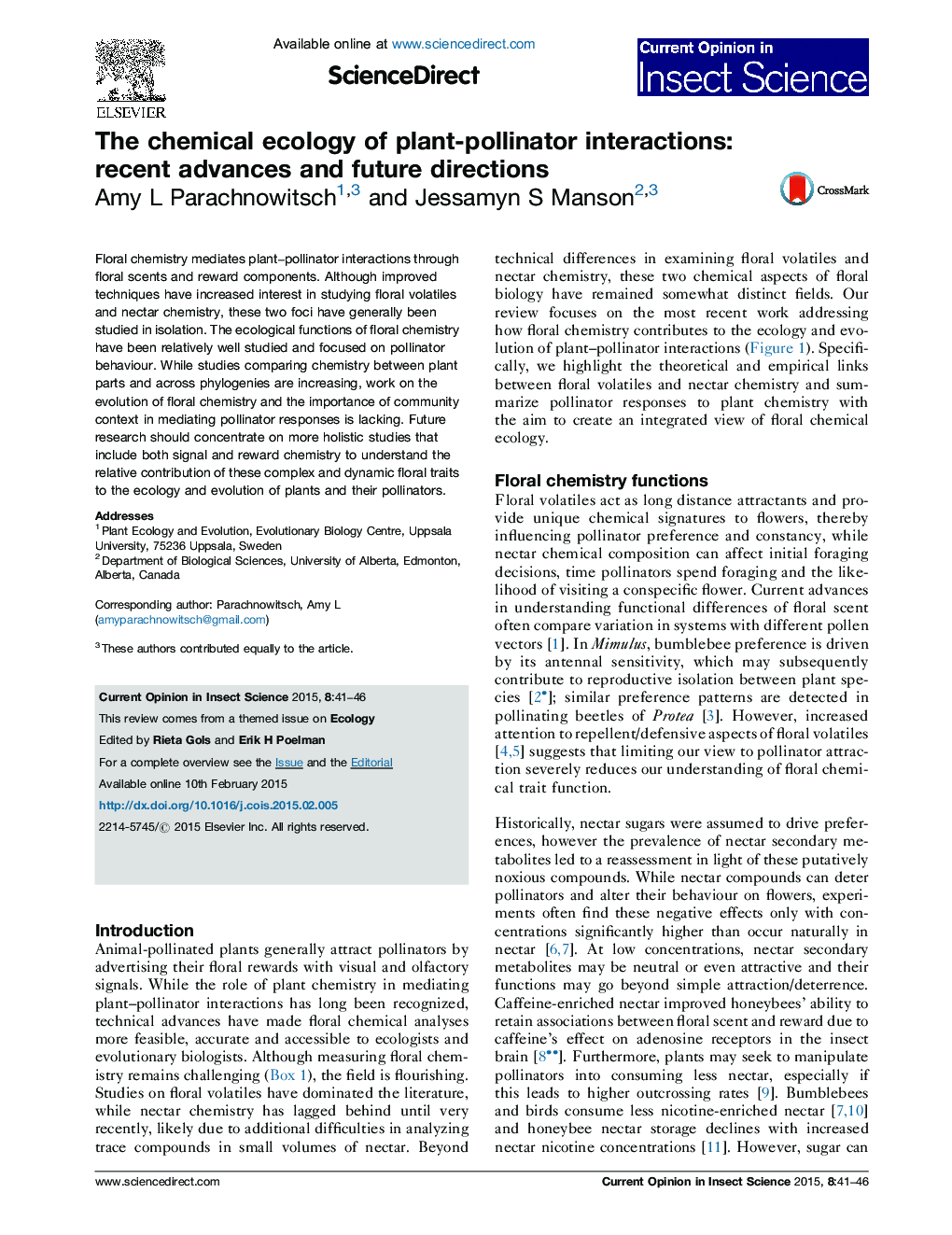| Article ID | Journal | Published Year | Pages | File Type |
|---|---|---|---|---|
| 4508235 | Current Opinion in Insect Science | 2015 | 6 Pages |
•Floral chemistry is studied in two sub-fields that focus on either scent or nectar.•Nectar chemistry studies have established that components may be adaptive.•Floral volatile studies are moving beyond the attractive function of scent.•Floral chemistry in community or evolutionary contexts is largely unexplored.•Research crosstalk will enrich understanding of plant–pollinator interactions.
Floral chemistry mediates plant–pollinator interactions through floral scents and reward components. Although improved techniques have increased interest in studying floral volatiles and nectar chemistry, these two foci have generally been studied in isolation. The ecological functions of floral chemistry have been relatively well studied and focused on pollinator behaviour. While studies comparing chemistry between plant parts and across phylogenies are increasing, work on the evolution of floral chemistry and the importance of community context in mediating pollinator responses is lacking. Future research should concentrate on more holistic studies that include both signal and reward chemistry to understand the relative contribution of these complex and dynamic floral traits to the ecology and evolution of plants and their pollinators.
